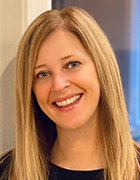
Getty Images
Ageism in software engineering is still a problem
Many developers want to program right up to retirement, but the reality of age discrimination unfairly hampers their career plans. Here's how to pitch experience as an asset.
Meaningful diversity, equity and inclusion in the workplace isn't limited to race and gender. The tech industry has a reputation for ageism, which presents challenges for professionals "of a certain age" to secure jobs or contracts, or even to be taken seriously.
Businesses that sincerely embrace DEI must also consider how they view age, and there are signs that this is starting to change. Many employers are intentionally considering candidates who have been in the workforce longer than a recent college grad.
 Erin Brawley
Erin Brawley
"Companies are paying attention to diversity, and this includes recruiting and promoting more seasoned professionals," said Erin Brawley, senior director for Pacific Northwest Sales at Randstad Technologies, a tech staffing, outsourcing, consulting and workforce solutions firm headquartered in Atlanta.
Be a continuous learner
Brawley encouraged seasoned job candidates who interview for new opportunities to highlight their experience relevant to the new role, and also highlight their efforts to continually learn new skills. "Articulate what it is they want to achieve in their career, and then demonstrate their adaptability and that they're a 'forever student' that wants to learn new skill sets and new technologies," she said.
The same advice applies to resumes, Brawley said. A prospective employer should easily discern why the candidate is a match for the position, based on their experience and how they have added responsibilities throughout their career.
Kyle Elliott, a career coach based in San Francisco, has a clientele of tenured executives in their 40s, 50s and 60s, and many of them worry about age discrimination. Often, however, this hiring bias doesn't actually exist -- but the candidate's fear of it causes problems.
 Kyle Elliot
Kyle Elliot
"They believe they're going to be discriminated against based on their age, so they take actions to prevent that -- and those actions actually hurt them," he said. Resist the temptation to omit items from or pad the resume.
Sell experience as an asset
Seasoned job candidates should be upfront about how old they are, since the employer will figure it out anyway. "Own it with confidence and say, 'What makes me fabulous and unique is my age, my years of experience and my knowledge,'" Elliott said.
Moreover, seasoned professionals offer valuable expertise for both young startups and large enterprises focused on innovation. Elliott encouraged job candidates to write a list of 10 reasons to hire them due to their years of experience, which will build confidence for interviews. (Communicate this as well on resumes, cover letters and LinkedIn profiles, he added.)
Then, during the interview, candidates should connect the dots for the recruiter or hiring manager about why they're a good asset to the team. Elliott suggested this talking point: "I recognize that your team has only been in the industry for five years. Here is why you may want someone with 20 years of experience in software development."
Advice for younger professionals: Be eager to learn
While ageism in software engineering is real, there are challenges at the other end of the scale -- young programmers who want to advance their careers despite a lack of skills and know-how.
When Randstad Technologies' Brawley interviews a younger job candidate who lacks professional experience, she focuses not just on aptitude, but attitude. In these interactions, she looks for an eagerness to learn and a willingness to be coached.
A younger candidate may fulfill only three out of the five listed criteria for a position, but may still be a great fit for an organization that seeks people who genuinely want to develop their skills.
"Maybe they're lacking in some experience, but they're going to make up for that with who they are at their core, because they're just so eager to learn," Brawley said.
Some organizations may be less open to hiring seasoned professionals. To understand if this is the case, reach out to current and former software developers who worked for the company to gain some insight into its corporate culture. "Companies can have really amazing employer branding [but] the internal culture doesn't match that," he said.
Brawley believes a lot of organizations are taking a hard look at their employee diversification, and that includes efforts to hire seasoned professionals. "We have a ways to go, but I'm encouraged to see programs that are being put in place," she said.









